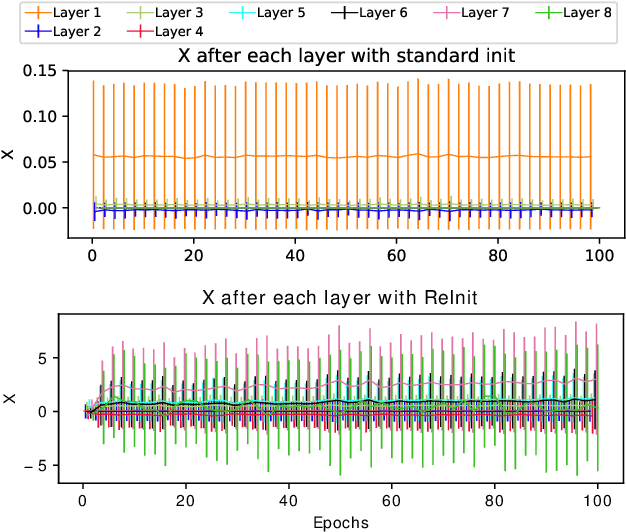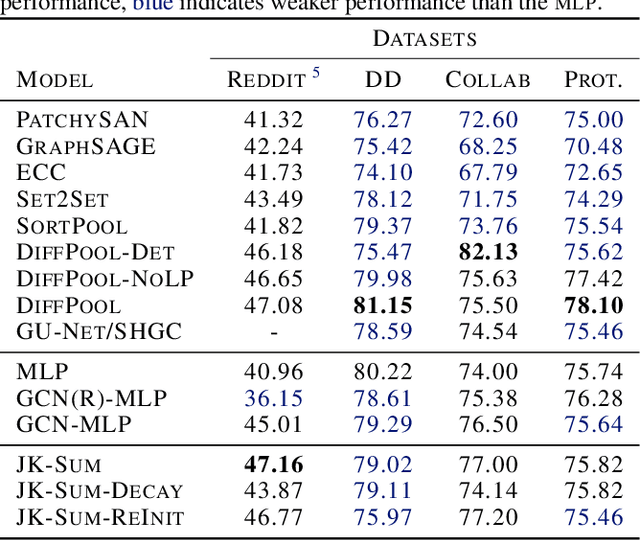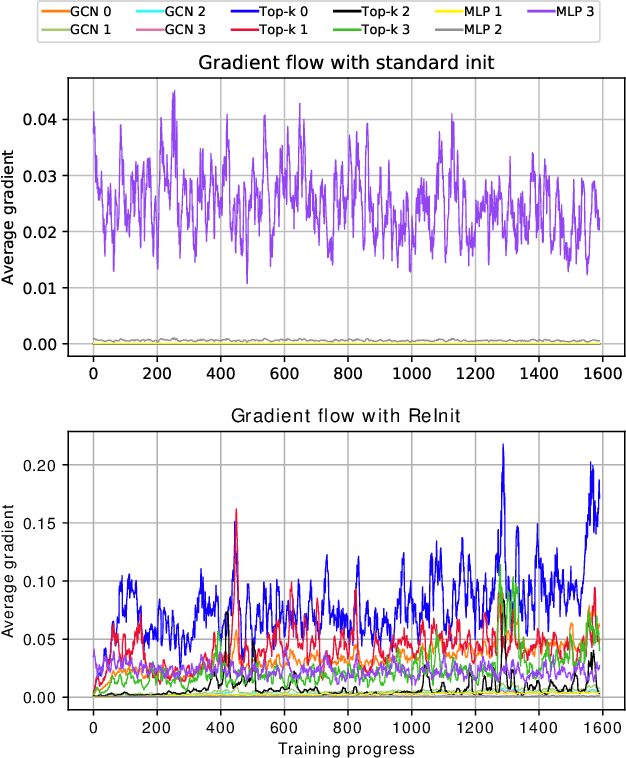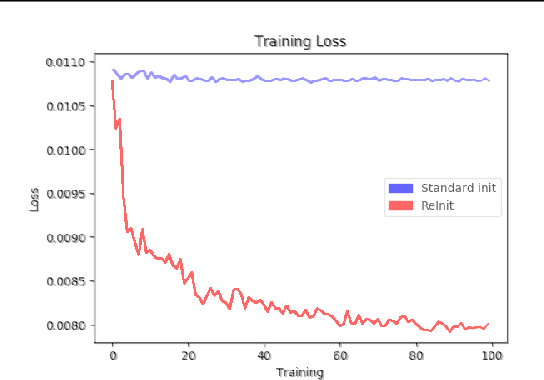On Graph Classification Networks, Datasets and Baselines
Paper and Code
May 12, 2019



Graph classification receives a great deal of attention from the non-Euclidean machine learning community. Recent advances in graph coarsening have enabled the training of deeper networks and produced new state-of-the-art results in many benchmark tasks. We examine how these architectures train and find that performance is highly-sensitive to initialisation and depends strongly on jumping-knowledge structures. We then show that, despite the great complexity of these models, competitive performance is achieved by the simplest of models -- structure-blind MLP, single-layer GCN and fixed-weight GCN -- and propose these be included as baselines in future.
* Submitted to the ICML 2019 Workshop on Learning and Reasoning with
Graph-Structured Data
 Add to Chrome
Add to Chrome Add to Firefox
Add to Firefox Add to Edge
Add to Edge